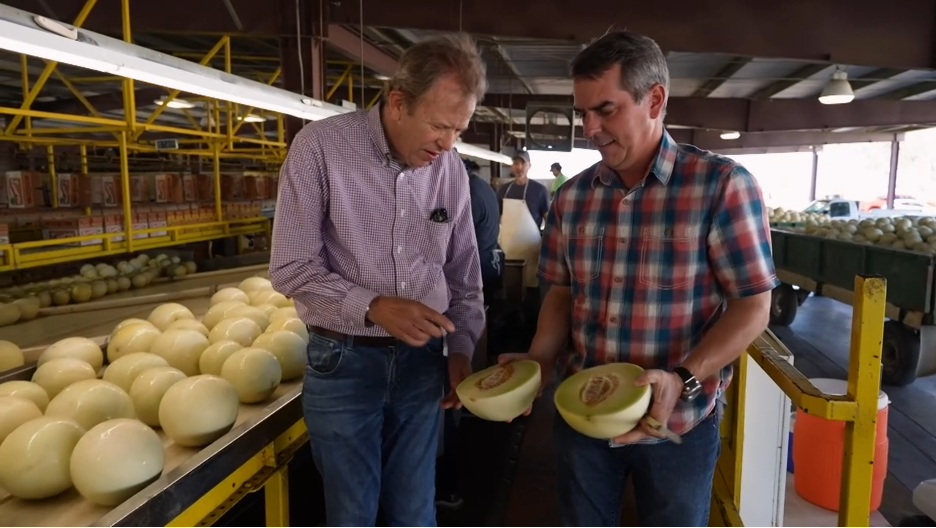After 17 successful years of working for NASA as a project manager and systems engineer, Neill Callis ended up taking his career to the unlikeliest of places—agriculture. How on earth does that happen, one has to ask? It wasn’t exactly rocket science, according to Callis. All puns aside, Callis explained that both jobs, while presenting different buckets of challenges, require a similar set of skills.
“What I found, and people laugh at me all the time for saying this, is that are a lot of similarities with what I needed to be successful in my last career and what I needed to be good at in farming,” Callis said. “You need an array of project management skills, including resource management, budget management, fiscal management and people management.”
After earning a degree in political science from Elon University in 1997, Callis sharpened these skills when he began his career working for the Universities Space Research Association, a NASA contractor in Washington D.C. He then moved to the Bay Area in 2003, spending the next decade working at NASA’s Ames Research Center on the SOFIA mission (an airborne telescope installed in a Boeing 747SP) in Mountain View, where Callis would meet his wife Hilary Smith, the great-granddaughter of the renowned James “Cantaloupe” Smith, who founded Turlock Fruit Company more than 100 years ago.
After their eldest child was born in 2011, the couple considered a change that would add to their quality of life. “We were living in San Francisco and commuting back and forth to Mountain View, and we were wondering how we were going to do this. The Bay Area can be a tough place,” Callis said.
It was around this time that Callis was presented with, quite literally, a career-changing opportunity when his father-in-law asked him to join the family business. Turlock Fruit Company, founded in 1918, is a four-generation family farming company known for its variety of sweet-tasting melons. “He had been looking at several opportunities that were opening up,” Callis said. “His father was 82 years old at the time, who by the way is 94 years old and still working today.”
Keeping true to his methodical nature, Callis agreed to do a stealth internship to calculate the risks and rewards of this potentially new career and ultimately jumped in with both feet. “It was a big change because I was giving up my own career that I had built and was now working with several generations of business owners who have grown this business from the ground up,” he said.
What helped him make the decision was joining his father-in-law at a Western Growers Annual Meeting. “It opened my eyes to not just seeing what farmers were doing, it was about becoming a part of a really important industry that has an effective voice through Western Growers and the people who are assembled as part of the organization,” he said. “There are growers of all sizes, and everyone is pulling on the rope the same way, tugging on the tough issues together, and that’s an amazing thing to see. That was not something that I saw in my years as a NASA contractor.”
Today, Callis works with three generations of Smiths at Turlock Fruit Company—his grandfather-in-law, Don Smith, who is a past Chairman of Western Growers, and was active in Western Growers’ success in convincing Congress to create the PACA Trust; his father-in-law, Steve Smith, who served on the Western Growers board and executive committee for several years until 2012; and his brother-in-law, Alec Smith, who is carrying on the Smith family commitment to grow the highest quality fruit.
Callis was first elected to the Western Growers board in 2019 and was most recently reappointed to serve a second term as Treasurer of the Board. For the upcoming term, Callis said he’s looking forward to tackling water management and immigration issues. “There’s a lot happening in our space, and things are changing very rapidly. I’m very anxious to find comprehensive solutions that benefit not just farmers, but everyone,” he said. “I don’t think anyone does a better job than Western Growers. The board has done a great job of nurturing the next generation of talent, even for non-native farmers like me, or in-law farmers, if you want to put it that way.”


